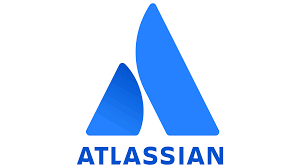Top Tech News: Week Ending June 23, 2024

Google Releases NotebookLM in Over 200 Countries
Google has expanded the reach of its AI-powered note-taking assistant, Notebook LLM, to more than 200 countries, including India, the UK, and others. Powered by Google's multimodal LLM Gemini 1.5 Pro, NotebookLM allows users to generate summaries and ask questions based on their documents. Unlike traditional chatbots, it adheres closely to the source material, making it a valuable tool for researchers, students, and professionals. The platform now supports 108 languages and sources in 38 languages, making it accessible to a global audience.
What is Google's AI-powered note-taking assistant? The NotebookLM Summarizes facts, explains complex ideas and answers questions based on user-uploaded documents. It is available in over 200 countries, supporting 108 languages. Research, education, and content creation

Google's NotebookLM: A Closer Look
NotebookLM is an AI-powered note-taking assistant developed by Google. Its primary purpose is to help users summarize content, understand complex ideas, and answer questions based on uploaded documents. Unlike traditional chatbots, NotebookLM closely adheres to the source material, making it a valuable tool for various use cases.
Key Features
Summarization: NotebookLM generates concise summaries of lengthy texts. This feature lets you grasp the main points quickly, whether reading research papers, articles, or reports.
Question Answering: Users can ask questions about the uploaded document. NotebookLM provides context-aware answers, enhancing comprehension and aiding in research.
Multilingual Support: The platform supports 108 languages, making it accessible to a global audience. Whether you're working in English, Spanish, Mandarin, or any other language, NotebookLM has you covered.
Source Adherence: Unlike generic chatbots, NotebookLM maintains fidelity to the original content. It doesn't generate unrelated responses but stays true to the context.
Use Cases
Researchers can use NotebookLM to summarize academic papers, analyze trends, and extract key findings.
Students benefit from concise summaries for studying, essay writing, and exam preparation.
Content creators, journalists, and bloggers can leverage NotebookLM to distil information and enhance their articles.
Google's NotebookLM combines AI sophistication with practical utility, empowering users to work smarter and more efficiently.
Latest Windows Security Flaw Allows Wi-Fi-Based Malware Attacks.
A critical security flaw affecting all versions of Windows (CVE-2024-30078) has been discovered. Hackers can exploit this vulnerability over Wi-Fi networks without physical access to a target system. Here are the details:
The Wi-Fi driver bug allows attackers to infect vulnerable PCs with malware, with a Severity CVSS score of 8.8 out of 10. An attacker must be on the same Wi-Fi network as the target and within the wifi range of a target device. No User Interaction is required: Victims don't need to click on links or download attachments; the attack happens silently.

A recently discovered vulnerability (tracked as CVE-2024-30078) affects all versions of Windows, including Windows 7 devices and Windows server editions, making it a critical concern for users. Here are the key details:
Mitigation: Apply the security patch promptly to protect your Windows PC.
Apply the latest security patch released by Microsoft to address the critical Wi-Fi-based security flaw in Windows systems (CVE-2024-30078). This patch targets the vulnerability and helps protect your PC from potential malware attacks.
New Zero-Day Vulnerability in Atlassian Products Exploited
A critical zero-day vulnerability in Atlassian's Confluence software has been disclosed, putting millions of systems at risk. CVE-2022-26134 vulnerability affects the Confluence Server and Data Center, allowing unauthorised remote code execution on unpatched systems. This vulnerability is particularly concerning as Confluence is widely used for project management and collaboration, making it a prime target for attackers looking to exploit sensitive organisational data.

The vulnerability was discovered by cybersecurity firm Volexity during an incident response. Attackers have been observed deploying web shells to maintain persistent access to compromised systems. This allows them to execute commands and manipulate data remotely, posing a severe threat to affected organisations.
Atlassian has responded by releasing security updates and urging users to apply patches immediately. They have also provided temporary workarounds for those unable to upgrade immediately. The severity of the vulnerability underscores the critical need for regular software updates and robust security practices to protect against emerging threats.
Organisations using Confluence are advised to update their installations to the latest versions and monitor their systems for any signs of exploitation. The incident highlights the importance of proactive vulnerability management in maintaining secure and resilient digital infrastructures.
OpenAI Faces Backlash Over Data Privacy
OpenAI, the leading artificial intelligence research organisation, faces significant backlash over data privacy concerns related to its popular AI models, including ChatGPT. Users and privacy advocates question how OpenAI collects, stores, and uses data, particularly the vast amounts of text and user interactions required to train its models.

Concerns have been raised about the potential for personal data to be inadvertently incorporated into AI training datasets, leading to unintentional disclosures of sensitive information. There are also fears that AI models could be used to generate convincing yet fraudulent content, posing a risk to information integrity and privacy.
In response to these concerns, OpenAI has pledged to enhance transparency and strengthen data protection measures. The organisation has committed to regularly auditing its data handling practices and improving user consent mechanisms to ensure compliance with privacy regulations. However, the controversy highlights the broader issue of ethical AI development and the need for robust regulatory frameworks to govern data usage in AI research and deployment.
This week's tech news roundup covered global AI advancements, critical security flaws, emerging trends, and notable achievements. Stay informed and secure as technology continues to evolve!




